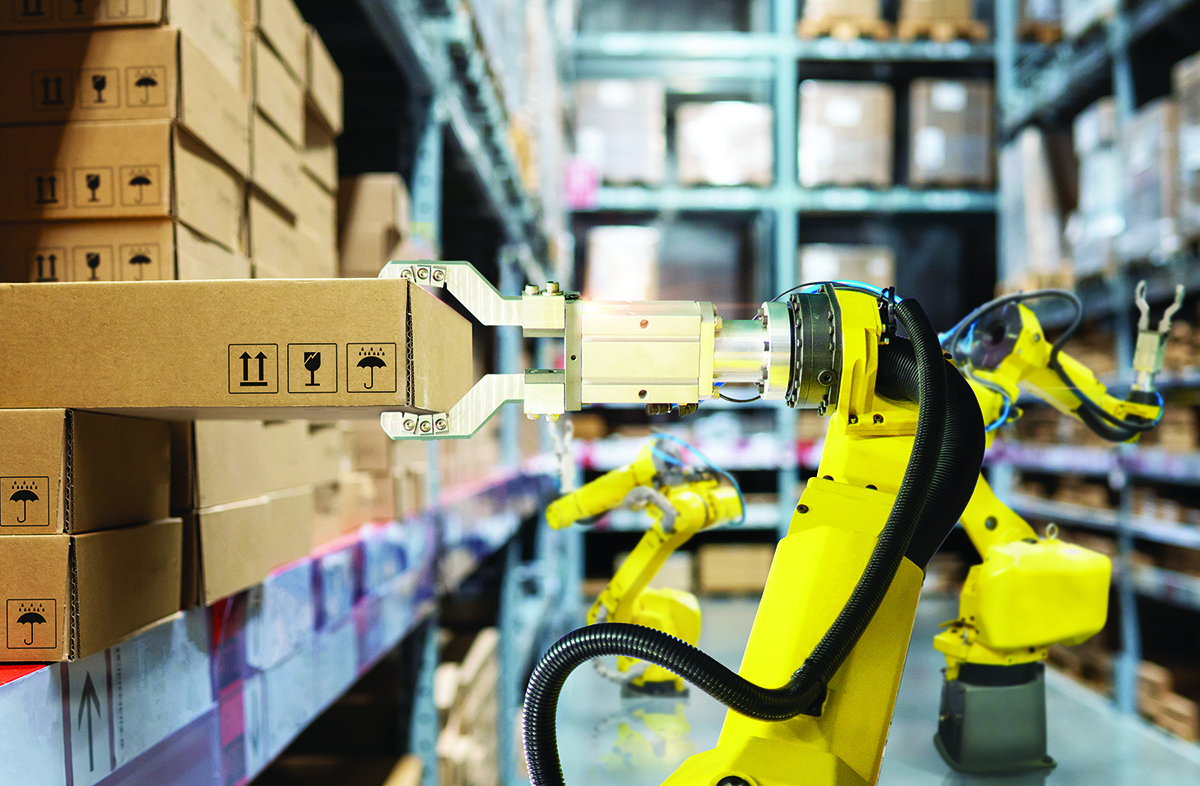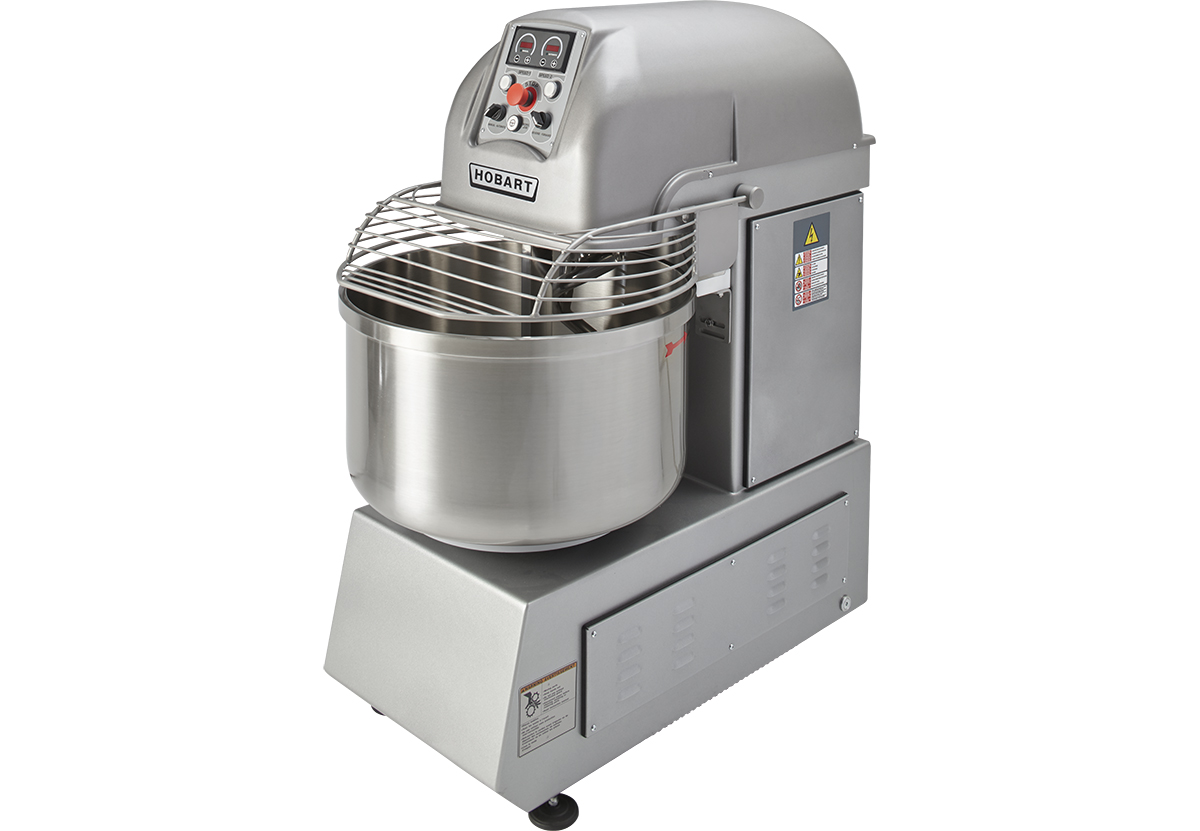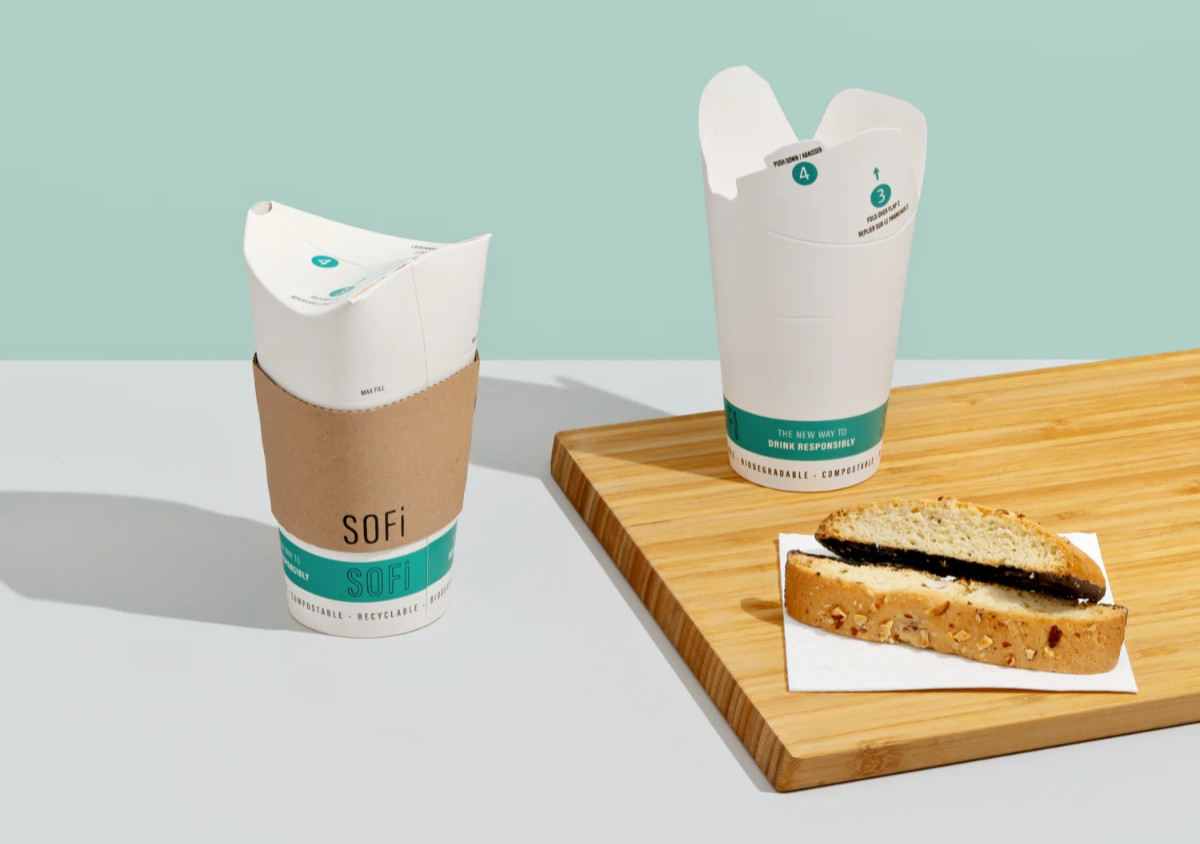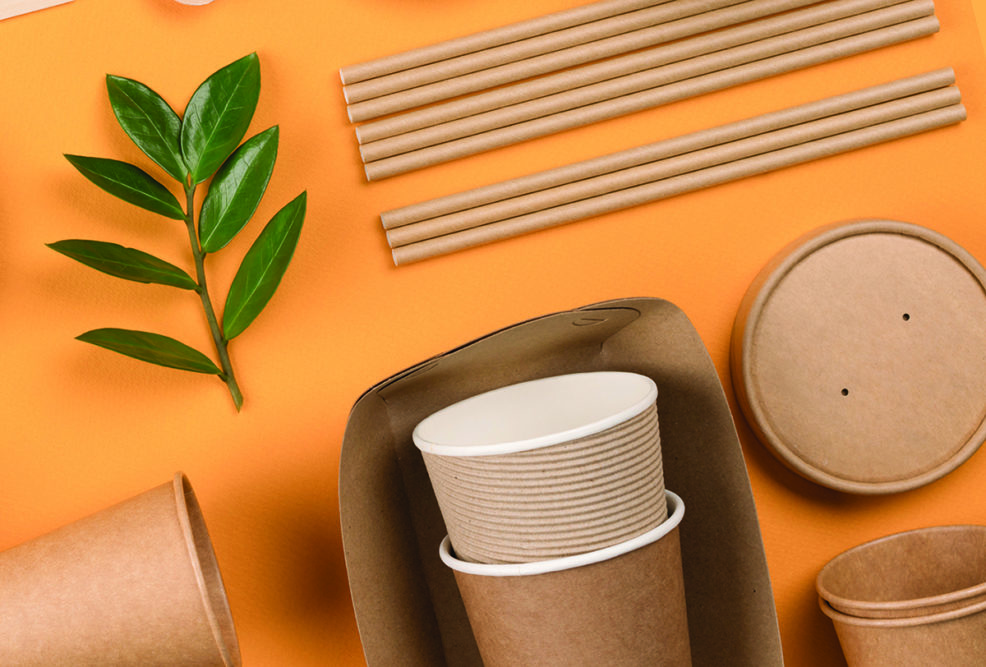As their branding journey continues to shift from Achatz Pies to Pie Collective by Achatz, the Michigan-based pie company has been working on new packaging, according to the company. Achatz Pies introduced new cobblers for the holiday season, featuring new packaging for this gluten-free product. Cobblers are available in fresh fruit flavors including cherry and peach.
In addition, Achatz Pies has unveiled a new pie crust box for its popular premium pie crusts, which come in two folded round sheets.
Achatz Pies invites shoppers to offer feedback on the new packaging through its @piecollective handle.
“My wife Wendy and I sold our restaurant in Armada, Achatz Family Restaurant, in 1990 and vowed never to get back into the food industry. But three years later, we began making pies from our home kitchen and selling at the Armada Flea Market. Today we have six of our own locations and many wholesale accounts,” explains owner and co-founder David Achatz, who founded the innovative pie company with his wife, Wendy.
“As we've grown, we have stayed true to our roots - we source local ingredients from the Mitten state, never compromise on quality, and work hard to develop each and every employee who comes through our doors.”
Supply-side response
 Source: Pugun & Photo Studio - stock.adobe.com
Source: Pugun & Photo Studio - stock.adobe.com Labor and skills shortages are pushing companies to invest in warehouse automation solutions, according to the newly released Packaging and Automation in the Warehouses of the Future report produced by PMMI, The Association for Packaging and Processing Technologies. Additionally, growing e-commerce activity and rising direct-to-consumer demands mean many CPG firms are seeing their warehousing and fulfillment operations become more complex, increasing the demand for mixed and layered pallets.
With these new trends, companies are turning to warehouse automation solutions such as palletizers and mobile robots, according to the PMMI report. More than one in four (25%) warehouses will have some form of automation installed by 2027, leaping from just 14% in 2017 and 18% at the end of 2021. The PMMI survey shows that less than 20% of CPG firms operate mostly automated warehouses today, and very few report they are fully automated.
As another PMMI report, 2022 The Future of Automation in Packaging and Processing, highlights the most immediate challenge in 2022 was the lack of available labor. For some companies, it was a case of automating the line or stopping production. Firms are starting to realize that a piecemeal approach to automation can be effective. Companies are increasingly demanding flexibility from their operations and the ability to alter output from production lines to meet fluctuating levels of demand.
Technology and sustainability
What is clear is that environmental factors are influencing the future of the bakery packaging industry and related factors.
The Institute of Food Technologists (IFT), a nonprofit scientific organization committed to advancing the science of food and its application across the global food system, recently released a white paper that examines how existing and novel processing technologies could help improve global food and nutrition security.
Food Science and Technology Solutions to Improve Food and Nutrition Security: Sustainable Production of Nutritious Foods Through Processing Technology is the result of a virtual roundtable discussion organized by IFT’s Food & Nutrition Security Steering Committee (FNSSC) that focused on utilizing existing and novel processing technologies to help better preserve nutritional quality. IFT’s Food and Nutrition Security Steering Committee (FNSSC), formed in 2021, previously organized a roundtable on the biggest food loss and waste challenges, resulting in the release of a white paper in 2023.
“With the global population expected to reach nearly 10 billion by 2050, the demand for safe, nutritious, and accessible food will only continue to increase, as will the need to conserve natural resources. Processing technology can help bridge the gap between these two necessities,” said IFT chief science and technology officer Bryan Hitchcock. “This white paper highlights the important role of food processing and identifies opportunities for scaling processing technologies to improve nutrition quality.”
Some of the challenges outlined in the white paper that the global food community must address to maximize the benefits of processing technology include a lack of up-to-date and aligned regulations, limited public-private funding support, unoptimized technology, and inaccurate consumer knowledge about food processing.
“Sustainable processing technologies that can be used both long-term and in emergency relief situations are especially valuable in developing countries where the need for adequate nutrition and safe food are persistent concerns,” added Anna Rosales, IFT’s senior director of government affairs and nutrition and moderator of the virtual roundtable discussion.
Innovative equipment
 Source: Hobart
Source: HobartHobart, the premium commercial food equipment manufacturer known for designing and building some of the most reliable, must-have equipment, will again give away a custom-designed Legacy+® HL662 pizza dough mixer at the International Pizza Expo. Attendees of the show, which takes place in Las Vegas from March 19 to 21, are encouraged to visit booth #2025 to see the mixer design and enter for a chance to win. Hobart will unveil the 60-quart mixer at the opening of the expo.
The Legacy+ HL662 pizza mixer (valued at $35,000) is specifically designed for demanding pizza dough applications. As the industry’s only maximum heavy-duty mixer, it provides as much as 30% more mixing capacity in the same size bowl, depending on the application. This feature allows pizza restaurants to gain productivity, without sacrificing quality.
The Hobart-exclusive PLUS System is behind the performance of the Legacy+ HL662 pizza mixer and is composed of three leading technologies. The mixer’s consistent mixing and ability to drive power to the bowl is the result of the Hobart VFDadvantage, while extreme-duty wiring and connections provide maximum capacity overheat protection and manage the mixer’s power. The reinforced planetary shaft drives more power into the bowl for greater output.
Attendees can enter the giveaway at the Hobart booth beginning at 10 a.m. PST on Tuesday, March 19. Only one entry is allowed per person.
Hobart will randomly select a winner from entries at the booth on Thursday, March 21, at approximately 12:30 p.m. PST. Attendees do not need to be present to win.
At Hobart, an ITW Food Equipment Group LLC brand, it is our mission to provide premium food preparation equipment that foodservice and food retail professionals can trust to work hard and deliver quality, consistent results day in and day out, empowering them to focus on what they love most – creating great food for great people. Hobart is part of ITW Food Equipment Group LLC (a subsidiary of Illinois Tool Works Inc.) and is proud to be an ENERGYSTAR® Partner of the Year since 2008.
Reusable containers
On the foodservice front, Starbucks Coffee Company has announced, starting January 3, customers at all company-operated and participating licensed Starbucks Stores across the U.S. and Canada can use their clean personal cup when ordering in café, in the drive-thru or when ordering ahead with the Starbucks app. With the majority of Starbucks beverages enjoyed on-the-go, this milestone unlocks a big opportunity for customers to choose reusables and supports Starbucks commitment to reduce waste by 50 percent by 2030.
“At Starbucks, we envision a future where every beverage can be served in a reusable cup,” said Michael Kobori, Starbucks chief sustainability officer. “Offering customers more options to use a personal cup when they visit Starbucks marks tangible progress towards the future. We know our customers are passionate about the planet, and now, they can join us in our efforts to give more than we take, no matter how they order.”
Starbucks is the first national coffeehouse in the U.S. to offer customers the option to use their personal cup when mobile ordering. In Canada, Starbucks is the first to offer customers the option to use their personal cup in mobile order for all drinks and all sizes. This is part of a larger cultural movement the company is leading to shift toward reusables and away from single-use plastics, making it convenient for customers to use their own personal cup for every visit.
Biodegradable cup
 Courtesy of SOFi
Courtesy of SOFiAfter four years of research and development, SOFi Products is excited to reveal its new 100% plastic-free, biodegradable cup for hot beverages that doesn’t require a separate lid.
The SOFi Hot Cup features three flaps that fold together to form a spill-proof spout. This design eliminates the need for a separate plastic lid, saving businesses money, storage space and freight costs. The company’s breakthrough patent-pending locking mechanism also ensures unmatched spill protection, while its proprietary water-based coating eliminates soggy sips.
“There are no cups currently on the market that are 100% biodegradable and eliminate the need for a lid,” said Brandon Leeds, co-founder of SOFi Products.
Despite industry efforts to create paper cups that are either recyclable or biodegradable, most companies use a plastic laminate as a sealant, which makes them difficult to recycle and nearly impossible to compost. The vast majority of cups also use plastic lids which make it more difficult to recycle. As a result, it is estimated that 50 billion cups are thrown away in the United States each year.
The SOFi Hot Cup doesn’t require a plastic lid and is truly biodegradable (biodegrades in less than 180 days), which means it can be composted at any composting facility.
Brothers Brandon and Jordan Leeds founded SOFi after they grew tired of seeing plastic waste in the waterways and on the beaches of Miami. In 2019, the brothers set out to create a paper straw that lasts for hours, does not get soggy, and does not taste like paper. The straws were a hit, so the brothers decided to create a paper cup for cold beverages that was 100% plastic free and biodegradable.
The straws and cups are now offered nationwide in Walmart and at a variety of coffee and restaurant chains, including La Colombe, Bluestone Lane, Earl of Sandwich, Alfred Coffee, and more.
Environmental goals
Novolex® released its fifth annual sustainability report, providing a comprehensive account of the company’s strides toward its ambitious environmental, social and governance (ESG) goals.
The report details the company’s accomplishments in increasing its recycling capacity, diverting waste from landfills, and using more Chain-of-Custody certified fiber and bio-based resins in its products.
“As a proud leader in the packaging industry, Novolex continues to set and achieve ESG goals for our business and for our customers,” said Stan Bikulege, Novolex Chairman and CEO. “The 10,000 members of the Novolex family are working hard to develop more sustainable packaging solutions, expand recycling and reduce waste. To achieve our ambitions, we continue to look for innovative ways to promote our safety culture, develop talent and provide an inclusive workplace.”
The report, written in accordance with the Global Reporting Initiative, details advancements on a number of important fronts. They include:
Setting a time-bound, numerical target to double the volume of post-consumer recycled (PCR) polyethylene film recycled at its North Vernon, Ind., recycling facility by the end of 2024. This target comes on the heels of a recent announcement that Novolex will operate a new recycling facility for Nova Chemicals that will expand collection of post-consumer film and production of recycled material to further support the circular economy.
Reporting the company’s “waste footprint” for the first time. In 2022 Novolex implemented a waste-to-landfill measurement program to enable monitoring and reduction of various waste streams from operations. Since starting its waste-reduction program in early 2022, Novolex has diverted over 5 million additional pounds of waste that would have otherwise been sent to landfills.
Increasing the company’s use of Chain-of-Custody certified fiber. These certifications, which are provided by leading third-party certification organizations, provide additional assurance that fiber comes from responsibly managed forests. In 2022, 7% of total virgin fiber volume used by Novolex was Chain-of-Custody certified, representing a 1% increase over 2021. This growth in Chain-of-Custody fiber purchases outpaced overall fiber volume growth for the first time since the company began publicly reporting this metric.
Expanding the use of materials that reflect emerging technologies and customer needs. Novolex continues to utilize bio-based resins, for example, as the demand for renewable, compostable and bio-based alternatives continues to grow. In 2022, 49% of Novolex raw materials came from renewable, bio-based or post-consumer recycled sources.
Creating a DEI Council comprised of Novolex leaders who guide and support our DEI strategies and objectives. Council members bring innovative and diverse ideas from their areas of the organization and champion diversity, equity and inclusion principles across the company.
Tamper evident
Inline Plastics has given a major update to all of its vented Safe-T-Chef products. First launched in 2022, Safe-T-Chef was the first tamper evident, tamper resistant, all-clear polypropylene product line, according to Inline.
The 360⁰ view of the contents has now been made even clearer to the consumer with an anti-fog feature.
For prepared foods sitting under lamps or in hot displays, Inline Plastics said venting is not enough to release all steam that builds up inside the package. The new anti-fog material for the Safe-T-Chef containers make it so that the steam does not prevent consumers from being able to see the product inside.
“Our customers repeatedly emphasize the importance of visibility, especially when displaying hot foods,” said Tom Orkisz, chairman and chief executive officer of Inline Plastics. “This is particularly relevant for an all-clear application like Safe-T-Chef that has clear lids as well as bases. By eliminating the unsightly fog, consumers can easily assess the freshness and condition of the food. Simply put, the contents inside are more appetizing and appealing when not hidden behind a foggy container.”





